Testagen 20mg ( 10 vial kit)
Testagen 20mg ( 10 vial kit)
Testagen, a bioregulatory peptide, enhances testosterone and thyroid hormone levels and supports immune function. (PMID: 15142373, PMID: 20731122, PMID: 31808038)
Testagen Research Topics:
-
Testosterone Enhancement:
Testagen stimulates the anterior pituitary gland, leading to an increased release of thyroid-stimulating hormone (TSH) and subsequently thyroid hormones (T3 and T4), which indirectly boosts testosterone levels. This is particularly beneficial for improving male sexual function, fertility, and overall reproductive health. (PMID: 15142373)
-
Thyroid Function:
By enhancing TSH production, Testagen helps normalize thyroid hormone levels, which can be beneficial for metabolic regulation and overall hormonal balance. This effect is particularly useful in cases of hypothyroidism. (PMID: 20731122)
-
Immune System Support:
Testagen has been shown to improve immune function by promoting the differentiation of stem cells into immune cells, enhancing the body’s ability to fight infections, and reducing the risk of autoimmune diseases and cancer. (PMID: 31808038)
Structure

Molecular Formula: C17H29Ns09
Molecular Weight: 44 7 .2 g/mol
Source: PubChem
Testagen and Thyroid Hormone
The thyroid gland, a part of the endocrine system, is important to metabolism, growth, and reproductive function. Dysfunction of the thyroid gland can lead to difficulties with memory and concentration, changes in heart rate, difficulty regulating body temperature, weight gain, high cholesterol levels, and trouble with reproductive function.
One of the many reasons that the thyroid gland malfunctions is due to the failure of the pituitary gland, the gland that regulates it. In this case, levels of another hormone, TSH, decline and do not stimulate the thyroid gland. There are several reasons why this may happen, but research in birds suggests that the pituitary gland can be stimulated, directly, but the administration of Testagen. Testagen appears to alter DNA expression profiles in the pituitary gland to raise TSH secretion. Studies show that this results in near-normal thyroid hormone levels [1],[2].
Testagen and Testosterone Levels
Research suggests that Testagen may help to normalize testosterone levels and thus testicular function. This may be especially pertinent to aging men suffering from declines in testosterone levels and related problems like lower bone density, decreased muscle mass, erectile dysfunction, inhibited libido, problems with cognition, and decreased energy levels.
It is important to note that the benefits of Testagen on the pituitary gland may occur even if the dysfunction is caused by tumors, medications (e.g. steroids, morphine) infection, and or autoimmune conditions. Right now, research is in its early stages so it is difficult to delineate the specific settings in which Testagen does and does not impact the pituitary gland.
Some or all of the benefits that Testagen has on testosterone levels may be directly linked to its effects on thyroid hormone levels. Research shows that hypothyroidism can lead to low testosterone levels that are subsequently normalized with thyroid hormone replacement therapy. Thyroid hormone replacement has also been shown to normalize free testosterone concentrations [3]. It stands to reason then that Testagen’s benefits on testosterone levels may be attributable to its effects on thyroid hormone levels. More research needs to be completed in this area.

Source: Frontiers in Endocrinology
Testagen and the Immune System
Research by Dr. Vladimir Khavinson has shown that peptides are capable of penetrating both cell and nuclear membranes to interact directly with DNA [4]. This epigenetic regulation of gene expression extends to the genes responsible for cell differentiation. Testagen has been shown by Dr. Khavinson to help push stem cells to differentiate into cells of the immune system, indicating that the peptide could have potential positive benefits on immune function [5]. This function may be especially useful in elderly individuals experiencing senescence and loss of cell differentiation secondary to chromatin condensation.
By its effects on the immune system, Testagen may be said to have anti-aging properties. By improving immune function and immune surveillance, Testagen could help to reduce the risk of several autoimmune diseases as well as cancers that tend to increase in prevalence with age. It is important to note that immune function is often tied to thyroid function and that low thyroid hormone levels are often associated with an increased risk of infection and poor immunity. The impact of Testagen on thyroid hormone levels may be a secondary contributor to its beneficial effects on immune function.
Testagen and Blood Clotting
Dr. Boris Kuznik, who is now retired, did some of the preliminary work with Dr. Khavinson on the role of Testagen and similar peptides in the blood system. His specialty of clotting, which is not a function of the immune system per se but is closely related and is, to some extent, influenced by the thyroid gland, led him to explore the ability of Testagen to improve hemostasis (blood clotting). Early research suggests that Testagen is useful in this setting and may be able to normalize hemostasis in certain disease conditions.
Testagen Summary
Testagen is a short, bioregulatory peptide that has primary effects on the pituitary gland and ultimately the thyroid gland. As a result of its action on these two glands, Testagen is capable of normalizing testosterone production as well as thyroid hormone production in certain settings. By normalizing thyroid hormone production, Testagen has a moderate impact on the immune system. In these cases, Testagen can be conveniently thought of as resetting the pituitary gland to a more youthful state and thereby acting as an anti-aging peptide. Testagen is being researched for its ability to boost testosterone levels, improve thyroid hormone function, and stimulate the differentiation of stem cells in the immune system to improve immune function.
Testagen exhibits minimal side effects, good oral, and excellent subcutaneous bioavailability in mice. Per kg, dosage in mice does not scale to humans. Testagen for sale at Life Link Research is limited to educational and scientific research only, not for human consumption. Only buy Testagen if you are a licensed researcher.
Article Author
The above literature was researched, edited, and organized by Dr. E. Logan, M.D. Dr. E. Logan holds a doctorate from Case Western Reserve University School of Medicine and a B.S. in molecular biology.
Scientific Journal Author
Vladimir Khavinson is a Professor, resident of the European region of the International Association of Gerontology and Geriatrics; Member of the Russian and Ukrainian Academies of Medical Sciences; Main gerontologist of the Health Committee of the Government of Saint Petersburg, Russia; Director of the Saint Petersburg Institute of Bioregulation and Gerontology; Vice president of Gerontological Society of the Russian Academy of Sciences; Head of the Chair of Gerontology and Geriatrics of the North-Western State Medical University, St-Petersburg; Colonel of medical service (USSR, Russia), retired. Vladimir Khavinson is known for the discovery, experimental, and clinical studies of new classes of peptide bioregulators as well as for the development of bioregulating peptide therapy. He is engaged in studying the role of peptides in the regulation of the mechanisms of ageing. His main field of action is the design, pre-clinical, and clinical studies of new peptide geroprotectors. A 40-year investigation resulted in a multitude of methods of application of peptide bioregulators to slow down the process of aging and increase human life span. Six peptide-based pharmaceuticals and 64 peptide food supplements have been introduced into clinical practice by V. Khavinson. He is an author of 196 patents (Russian and international) as well as of 775 scientific publications. His major achievements are presented in two books: “Peptides and Ageing” (NEL, 2002) and “Gerontological Aspects of Genome Peptide Regulation” (Karger AG, 2005). Vladimir Khavinson introduced the scientific specialty “Gerontology and Geriatrics” in the Russian Federation on the governmental level. Academic Council headed by V. Khavinson has oversight over 200 Ph.D. and Doctorate theses from many different countries.
Prof. Vladimir Khavinson is being referenced as one of the leading scientists involved in the research and development of Testagen. In no way is this doctor/scientist endorsing or advocating the purchase, sale, or use of this product for any reason. There is no affiliation or relationship, implied or otherwise, between Life Link Research and this doctor. The purpose of citing the doctor is to acknowledge, recognize, and credit the exhaustive research and development efforts conducted by the scientists studying this peptide. Prof. Vladimir Khavinson is listed in [4] and [5] under the referenced citations.
Referenced Citations
- B. I. Kuznik, A. V. Pateiuk, N. S. Rusaeva, L. M. Baranchugova. and V. I. Obydenko, :[Effects of Lys-Glu-AsR-Gly and Ala-Glu-ASR-GIY synthetic peptides on immunity, hemostasis, morphology and functions of the thyroid gland in neonatally
hypophysectomized chicken and one-year-old birds],” Pata/. Fiziol. EksQ. Ter., no. 1, 1212- 14- 18, Mar. 2010. - B. I. Kuznik, A. V. Pateiuk, N. S. Rusaeva, L. M. Baranchugova, and V. I. Obydenko, :[Effects of Lys-Glu-Asp-Gly and Ala-Glu-Aspgly peptides on hormonal activity and thyroid in sectomized mature and old birds].” Adv. Gerontol Gerontol., vol.24,no.1,pp.93-98,2011.
- A. W. Meikle, “The interrelationships between thyroid dysfunction and hypogonadism in men and boys,” Thyroid Off. J. Am. Thyroid Assoc. vol. 14 S17-25, 2004, doi: 10.1089/105072504323024552.
- L. I. Fedoreyeva, I. I. Kireev, V. K. Khavinson, and B. F. Vanyushin, “Penetration of short fluorescence-labeled peptides into the nucleus in Hela cells and in vitro scientific interaction of the peptides with deoxyribooligonucleotides and DNA,” Biochem. Biokhimfia, vol. 76, no. 11, Art. no. 11, Nov. 2011, doi: 10.1134/S0006297911110022.
- V. Khavinson, N. Linkova, A. Diatlova, and S. Trofimova, “Peptide Regulation of Cell Differentiation,” Stem Cell Rev. Reg, vol. 16, no. 1, p2. 118-125, Feb. 2020, doi: 10.1007/s12015-019-09938-8.
$470.00
Description
Testagen, a bioregulatory peptide, enhances testosterone and thyroid hormone levels and supports immune function. (PMID: 15142373, PMID: 20731122, PMID: 31808038)
Testagen Research Topics:
-
Testosterone Enhancement:
Testagen stimulates the anterior pituitary gland, leading to an increased release of thyroid-stimulating hormone (TSH) and subsequently thyroid hormones (T3 and T4), which indirectly boosts testosterone levels. This is particularly beneficial for improving male sexual function, fertility, and overall reproductive health. (PMID: 15142373) -
Thyroid Function:
By enhancing TSH production, Testagen helps normalize thyroid hormone levels, which can be beneficial for metabolic regulation and overall hormonal balance. This effect is particularly useful in cases of hypothyroidism. (PMID: 20731122) -
Immune System Support:
Testagen has been shown to improve immune function by promoting the differentiation of stem cells into immune cells, enhancing the body’s ability to fight infections, and reducing the risk of autoimmune diseases and cancer. (PMID: 31808038)
Structure

Molecular Formula: C17H29Ns09
Molecular Weight: 44 7 .2 g/mol
Source: PubChem
Testagen and Thyroid Hormone
The thyroid gland, a part of the endocrine system, is important to metabolism, growth, and reproductive function. Dysfunction of the thyroid gland can lead to difficulties with memory and concentration, changes in heart rate, difficulty regulating body temperature, weight gain, high cholesterol levels, and trouble with reproductive function.
One of the many reasons that the thyroid gland malfunctions is due to the failure of the pituitary gland, the gland that regulates it. In this case, levels of another hormone, TSH, decline and do not stimulate the thyroid gland. There are several reasons why this may happen, but research in birds suggests that the pituitary gland can be stimulated, directly, but the administration of Testagen. Testagen appears to alter DNA expression profiles in the pituitary gland to raise TSH secretion. Studies show that this results in near-normal thyroid hormone levels [1],[2].
Testagen and Testosterone Levels
Research suggests that Testagen may help to normalize testosterone levels and thus testicular function. This may be especially pertinent to aging men suffering from declines in testosterone levels and related problems like lower bone density, decreased muscle mass, erectile dysfunction, inhibited libido, problems with cognition, and decreased energy levels.
It is important to note that the benefits of Testagen on the pituitary gland may occur even if the dysfunction is caused by tumors, medications (e.g. steroids, morphine) infection, and or autoimmune conditions. Right now, research is in its early stages so it is difficult to delineate the specific settings in which Testagen does and does not impact the pituitary gland.
Some or all of the benefits that Testagen has on testosterone levels may be directly linked to its effects on thyroid hormone levels. Research shows that hypothyroidism can lead to low testosterone levels that are subsequently normalized with thyroid hormone replacement therapy. Thyroid hormone replacement has also been shown to normalize free testosterone concentrations [3]. It stands to reason then that Testagen’s benefits on testosterone levels may be attributable to its effects on thyroid hormone levels. More research needs to be completed in this area.

Source: Frontiers in Endocrinology
Testagen and the Immune System
Research by Dr. Vladimir Khavinson has shown that peptides are capable of penetrating both cell and nuclear membranes to interact directly with DNA [4]. This epigenetic regulation of gene expression extends to the genes responsible for cell differentiation. Testagen has been shown by Dr. Khavinson to help push stem cells to differentiate into cells of the immune system, indicating that the peptide could have potential positive benefits on immune function [5]. This function may be especially useful in elderly individuals experiencing senescence and loss of cell differentiation secondary to chromatin condensation.
By its effects on the immune system, Testagen may be said to have anti-aging properties. By improving immune function and immune surveillance, Testagen could help to reduce the risk of several autoimmune diseases as well as cancers that tend to increase in prevalence with age. It is important to note that immune function is often tied to thyroid function and that low thyroid hormone levels are often associated with an increased risk of infection and poor immunity. The impact of Testagen on thyroid hormone levels may be a secondary contributor to its beneficial effects on immune function.
Testagen and Blood Clotting
Dr. Boris Kuznik, who is now retired, did some of the preliminary work with Dr. Khavinson on the role of Testagen and similar peptides in the blood system. His specialty of clotting, which is not a function of the immune system per se but is closely related and is, to some extent, influenced by the thyroid gland, led him to explore the ability of Testagen to improve hemostasis (blood clotting). Early research suggests that Testagen is useful in this setting and may be able to normalize hemostasis in certain disease conditions.
Testagen Summary
Testagen is a short, bioregulatory peptide that has primary effects on the pituitary gland and ultimately the thyroid gland. As a result of its action on these two glands, Testagen is capable of normalizing testosterone production as well as thyroid hormone production in certain settings. By normalizing thyroid hormone production, Testagen has a moderate impact on the immune system. In these cases, Testagen can be conveniently thought of as resetting the pituitary gland to a more youthful state and thereby acting as an anti-aging peptide. Testagen is being researched for its ability to boost testosterone levels, improve thyroid hormone function, and stimulate the differentiation of stem cells in the immune system to improve immune function.
Testagen exhibits minimal side effects, good oral, and excellent subcutaneous bioavailability in mice. Per kg, dosage in mice does not scale to humans. Testagen for sale at Life Link Research is limited to educational and scientific research only, not for human consumption. Only buy Testagen if you are a licensed researcher.
Article Author
The above literature was researched, edited, and organized by Dr. E. Logan, M.D. Dr. E. Logan holds a doctorate from Case Western Reserve University School of Medicine and a B.S. in molecular biology.
Scientific Journal Author
Vladimir Khavinson is a Professor, resident of the European region of the International Association of Gerontology and Geriatrics; Member of the Russian and Ukrainian Academies of Medical Sciences; Main gerontologist of the Health Committee of the Government of Saint Petersburg, Russia; Director of the Saint Petersburg Institute of Bioregulation and Gerontology; Vice president of Gerontological Society of the Russian Academy of Sciences; Head of the Chair of Gerontology and Geriatrics of the North-Western State Medical University, St-Petersburg; Colonel of medical service (USSR, Russia), retired. Vladimir Khavinson is known for the discovery, experimental, and clinical studies of new classes of peptide bioregulators as well as for the development of bioregulating peptide therapy. He is engaged in studying the role of peptides in the regulation of the mechanisms of ageing. His main field of action is the design, pre-clinical, and clinical studies of new peptide geroprotectors. A 40-year investigation resulted in a multitude of methods of application of peptide bioregulators to slow down the process of aging and increase human life span. Six peptide-based pharmaceuticals and 64 peptide food supplements have been introduced into clinical practice by V. Khavinson. He is an author of 196 patents (Russian and international) as well as of 775 scientific publications. His major achievements are presented in two books: “Peptides and Ageing” (NEL, 2002) and “Gerontological Aspects of Genome Peptide Regulation” (Karger AG, 2005). Vladimir Khavinson introduced the scientific specialty “Gerontology and Geriatrics” in the Russian Federation on the governmental level. Academic Council headed by V. Khavinson has oversight over 200 Ph.D. and Doctorate theses from many different countries.
Prof. Vladimir Khavinson is being referenced as one of the leading scientists involved in the research and development of Testagen. In no way is this doctor/scientist endorsing or advocating the purchase, sale, or use of this product for any reason. There is no affiliation or relationship, implied or otherwise, between Life Link Research and this doctor. The purpose of citing the doctor is to acknowledge, recognize, and credit the exhaustive research and development efforts conducted by the scientists studying this peptide. Prof. Vladimir Khavinson is listed in [4] and [5] under the referenced citations.
Referenced Citations
- B. I. Kuznik, A. V. Pateiuk, N. S. Rusaeva, L. M. Baranchugova. and V. I. Obydenko, :[Effects of Lys-Glu-AsR-Gly and Ala-Glu-ASR-GIY synthetic peptides on immunity, hemostasis, morphology and functions of the thyroid gland in neonatally
hypophysectomized chicken and one-year-old birds],” Pata/. Fiziol. EksQ. Ter., no. 1, 1212- 14- 18, Mar. 2010. - B. I. Kuznik, A. V. Pateiuk, N. S. Rusaeva, L. M. Baranchugova, and V. I. Obydenko, :[Effects of Lys-Glu-Asp-Gly and Ala-Glu-Aspgly peptides on hormonal activity and thyroid in sectomized mature and old birds].” Adv. Gerontol Gerontol., vol.24,no.1,pp.93-98,2011.
- A. W. Meikle, “The interrelationships between thyroid dysfunction and hypogonadism in men and boys,” Thyroid Off. J. Am. Thyroid Assoc. vol. 14 S17-25, 2004, doi: 10.1089/105072504323024552.
- L. I. Fedoreyeva, I. I. Kireev, V. K. Khavinson, and B. F. Vanyushin, “Penetration of short fluorescence-labeled peptides into the nucleus in Hela cells and in vitro scientific interaction of the peptides with deoxyribooligonucleotides and DNA,” Biochem. Biokhimfia, vol. 76, no. 11, Art. no. 11, Nov. 2011, doi: 10.1134/S0006297911110022.
- V. Khavinson, N. Linkova, A. Diatlova, and S. Trofimova, “Peptide Regulation of Cell Differentiation,” Stem Cell Rev. Reg, vol. 16, no. 1, p2. 118-125, Feb. 2020, doi: 10.1007/s12015-019-09938-8.
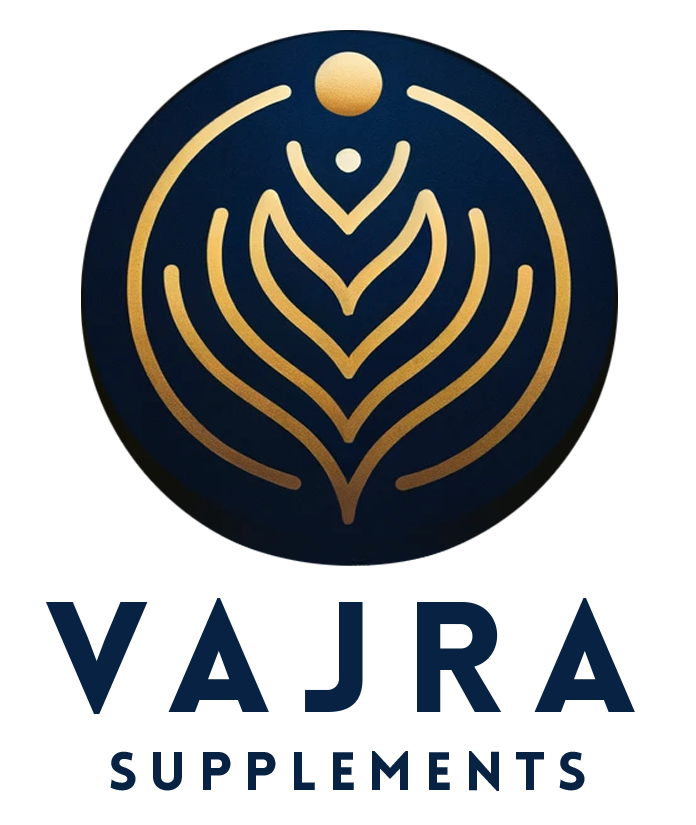



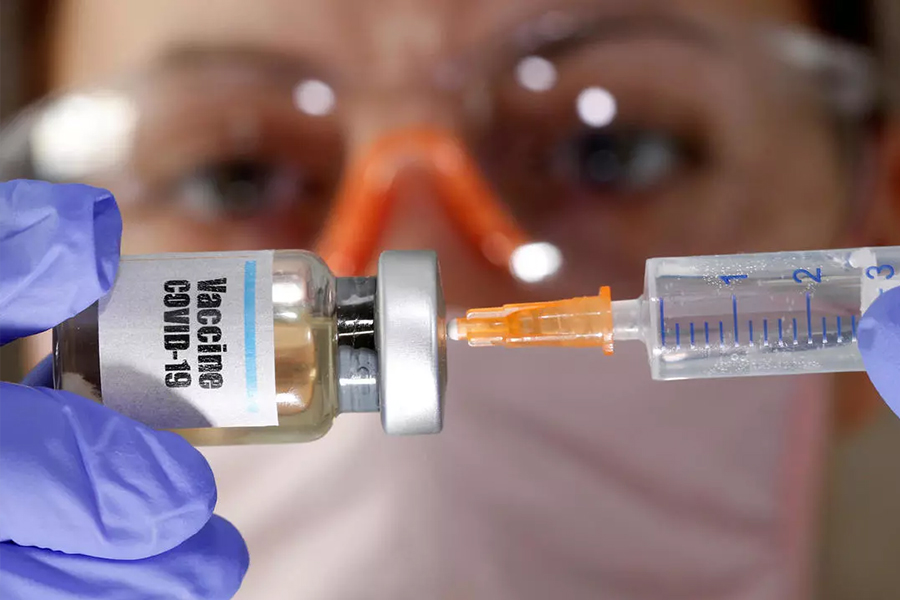


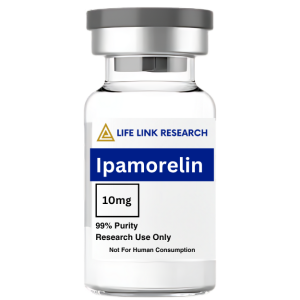
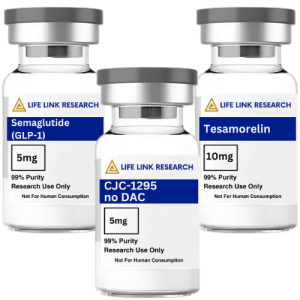
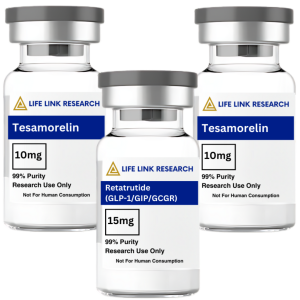
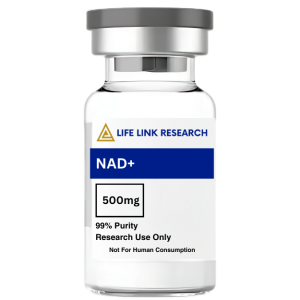
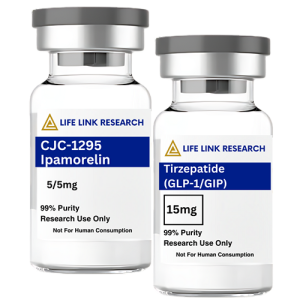
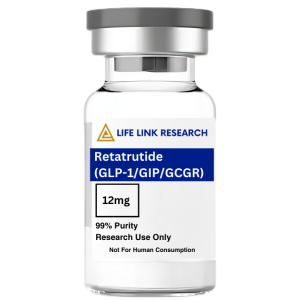


Reviews
There are no reviews yet.